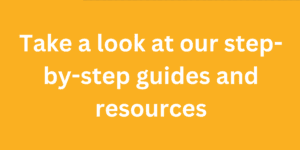Student performance is a hot topic for educators across the country. Teachers face immense pressure to deliver high test scores and to develop capable students, yet they also must deal with outside factors that can make that feel harder than ever.
There is one tool we often see missing, though: a strong study skills curriculum. Strong study skills equip students to become self-directed learners and make teaching academic content much more enjoyable. Study skills, when properly taught and trained, develop like a muscle building a student’s capacity to learn on their own.
When students understand how to teach themselves, even if the material is difficult, they are motivated to persevere. The more intentionally a study skills curriculum is taught, the more capable students will perform at all grade and capability levels.
With everything teachers are already expected to do, teaching study skills may seem like an extra task, one that tips the balance for them, and thus study skills may be overlooked or dismissed when it comes to planning your weekly lesson plans. In this article, we’ll break down why a strong study skills curriculum is a critical tool for teachers who want to help their students thrive academically and secure a brighter future.

Why Study Skills Should Be Important to Teachers
Depending on what grade and subject you teach, you may assume your students already have a strong foundation of study skills. In fact, when we did a brief survey, 85% of teachers of grades 4, 5, and 6 believed that teaching study skills was the responsibility of the prior grade level.
In truth, study skills are skills that are developed throughout primary and secondary education. Educators often falsely assume that students are able to pick up those academic management and study skills naturally, without direct instruction, dedicated lessons and evaluations. Some students may have actually picked up negative study habits, like reviewing or cramming the night before an exam.
Students are often criticized for procrastinating that leads to mounting anxiety when in fact, they struggle with how to plan and prioritize. When asked, the majority of students report they have never been taught how to study. Yet, they go to school daily and are directed to do so.
In particular, students with learning disabilities and conditions like ADD/ADHD, dyslexia or processing delays may have additional barriers to developing strong study skills. These students benefit from direct and explicit instruction on the exact steps to study properly. Unfortunately, they don’t often get this type of instruction as part of the standard academic curriculum—thus, students can become discouraged and disinterested in school.
Fortunately, study skills courses and academic coaches are available outside of school in order to provide the necessary supplemental instruction for students. Educators can also attend educator workshops, gather resources, and bring executive function lessons into the classroom, like that from Effective Students.
6 Reasons Why a Strong Study Skills Curriculum Matters
If you’re considering implementing a study skills curriculum in your classroom, you probably already have an idea of a few of the benefits. Below, we break down how dedicated study skills lessons can make a difference for your students.
1. Better Grades and More Engaged Learners
When it comes to the benefits of teaching study skills, the most obvious perk is better grades for your students. Students with strong study skills can better prepare for tests and manage their workload to complete tasks and projects effectively, all while retaining the knowledge that they have just put into practice. Reteaching is kept to a minimum, and students are encouraged by the success they experience.
Teachers face intense pressure to produce high test scores, and, under that pressure, it’s understandable to focus on the content rather than study skills. However, a strong study skills curriculum can build learning synergy between the teacher and student, with both pulling together to learn. Teachers who pair academic content with study skills will see their students achieving better grades.
2. Building Academic Confidence
Academic anxiety is a sometimes unaddressed aspect of the educational experience for students across the country. Students, when ill equipped with the study skills to successfully tackle a challenging project, class, or exam with confidence, do not know how they will approach the task to succeed. Strong study skills can provide that confidence and competence to take on these academic challenges successfully.
Confident students can experience less anxiety because they have the appropriate study skills to respond to the task. In turn, overcoming academic challenges builds confidence so students can look forward to their classes rather than feeling a sense of dread. These students are more likely to continue their academic journey into postsecondary education and beyond, as school becomes less stressful for them when they know how to study well.

3. Executive Function Development
Study skills involve the processing of information, retained for later use, and selecting the right strategies for a given project or test. Those study skills are closely tied to executive functions, which refers to the set of skills that are responsible for controlling cognitive behavior, starting at the planning stage and continuing through to problem-solving, implementation and self-regulation.
Executive functions develop between the ages of thirteen and twenty-five. With direct instruction, consistent practice, self-reflection, and relevant adjustments, students can intentionally improve their executive function skills, equipping themselves to be self-directed learners.
By incorporating study skills into your curriculum, your students will be able to develop and refine the crucial executive function skills that can be needed for the classroom, the workplace, and life at large. In fact, executive functions are the leading indicator of long-term success. Strong study skills can also help students overcome executive dysfunction, as it gives the students a better perspective on their own areas of weakness and what they can do to build the skills they need to succeed.
4. Time Management Skills
One key facet of a strong study skills curriculum is time management, which is a skill that pays off endlessly both inside and outside of the classroom. Time management skills equip students to plan and prioritize and will prepare students to succeed in college and life.
When your students can manage their time more effectively, your class will be more likely to keep pace with the grade level scope and sequence, making the class less likely to fall behind, as you won’t have to waste as much time recapping previous lessons or tracking down missing assignments at the end of the grading period.
These time management skills help students outside of the classroom, too, which can be especially important for students who participate in extracurricular activities and part-time jobs. An important part of developing time management skills is repeated practice and problem solving around their own time challenges and even others.
The Effective Student Curriculum includes case studies for students to practice problem solving for third parties which can also reduce anxiety around academics. If your students are looking for an academic planner that helps them manage time, we recommend our academic planner, which was custom designed to help students incorporate healthy executive function skills.
5. Student Independence
Students who have strong study skills are more likely to be able to work independently and successfully when it comes to managing their time, staying organized, and setting appropriate goals. These students can be better trusted to get their work done and make their way through the academic assignments and content without close monitoring or redirection by their teachers.
Students with a full repertoire of study skills can autonomously study and work through their materials, knowing when to apply different study strategies and when to seek additional support. By empowering students through a strong study skills curriculum, teachers can increase the independence of their students and extend their interest in academics.
6. Preparation for the Future
Students are often told that their workload and study requirements will be greatly increased when they get to college, which is intimidating. Students who don’t have the opportunity to really learn from a study skills curriculum and put those study skills into practice are less likely to pursue academics and extend their learning experience. By the time students get to college, study skills are absolutely necessary to have established in order to not quickly fall behind or feel the need to drop a class.
By learning study skills in high school or even earlier, students can be better prepared for their future, whether that involves academia or a different career path. Strong study skills provide students with the confidence and competence to challenge themselves and successfully address obstacles they may encounter in the workforce.

Implement a Strong Study Skills Curriculum with Effective Students
At Effective Students, we’ve seen how much a strong study skills curriculum can transform a classroom, giving students the power to take learning into their own hands. All of our study skills resources, including the Instructor Course and Effective Student™ Curriculum, are designed with teachers in mind, aiming to make their jobs easier and their students more competent, confident learners.
The Instructor Course for the Effective Student™ Curriculum includes everything you need to bring strong study skills into your classroom. The mini lessons that are included only take 15 minutes per week to implement!
Explore our teacher resources—then contact us to get started bringing our solutions to your classroom.

